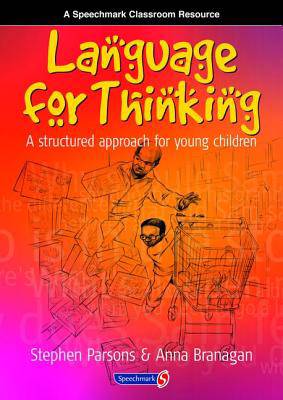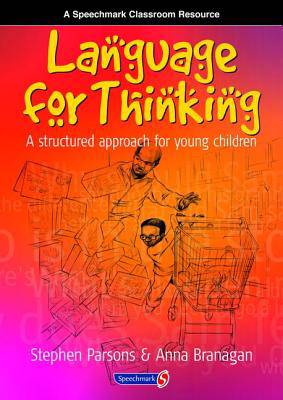
- Afhalen na 1 uur in een winkel met voorraad
- Gratis thuislevering in België vanaf € 30
- Ruim aanbod met 7 miljoen producten
- Afhalen na 1 uur in een winkel met voorraad
- Gratis thuislevering in België vanaf € 30
- Ruim aanbod met 7 miljoen producten
Zoeken
€ 102,95
+ 205 punten
Omschrijving
While most children develop verbal reasoning skills with relative ease, others find it more challenging. Verbal reasoning is particularly difficult for children who are recognised as having delayed language skills, specific language impairment, Autistic Spectrum Disorder (including Asperger's Syndrome), pragmatic language impairment or moderate learning difficulties. Children with less obvious oral language difficulties may begin to struggle when they start to read. This photocopiable resource provides a clear structure to assist teachers, SENCOs, learning support assistants and speech language therapists in developing children's language from the concrete to the abstract. It is based on fifty picture and verbal scenarios that can be used flexibly with a wide range of ages and abilities. Quick, practical and easy to use in the classroom, this programme can be used with individual children, in small groups or can form the basis of a literacy lesson or speech language therapy session. Question sheets are carefully structured to promote children's development of inference, verbal reasoning and thinking skills. The three parallel assessments of spoken and written language can be used to assess each child's starting level and then to monitor progress; score forms and worksheets for each lesson are included.
Specificaties
Betrokkenen
- Auteur(s):
- Uitgeverij:
Inhoud
- Aantal bladzijden:
- 204
- Taal:
- Engels
- Reeks:
Eigenschappen
- Productcode (EAN):
- 9780863885754
- Verschijningsdatum:
- 17/06/2002
- Formaat:
- Ongenaaid / garenloos gebonden
- Afmetingen:
- 220 mm x 297 mm
- Gewicht:
- 759 g

Alleen bij Standaard Boekhandel
+ 205 punten op je klantenkaart van Standaard Boekhandel
Beoordelingen
We publiceren alleen reviews die voldoen aan de voorwaarden voor reviews. Bekijk onze voorwaarden voor reviews.








